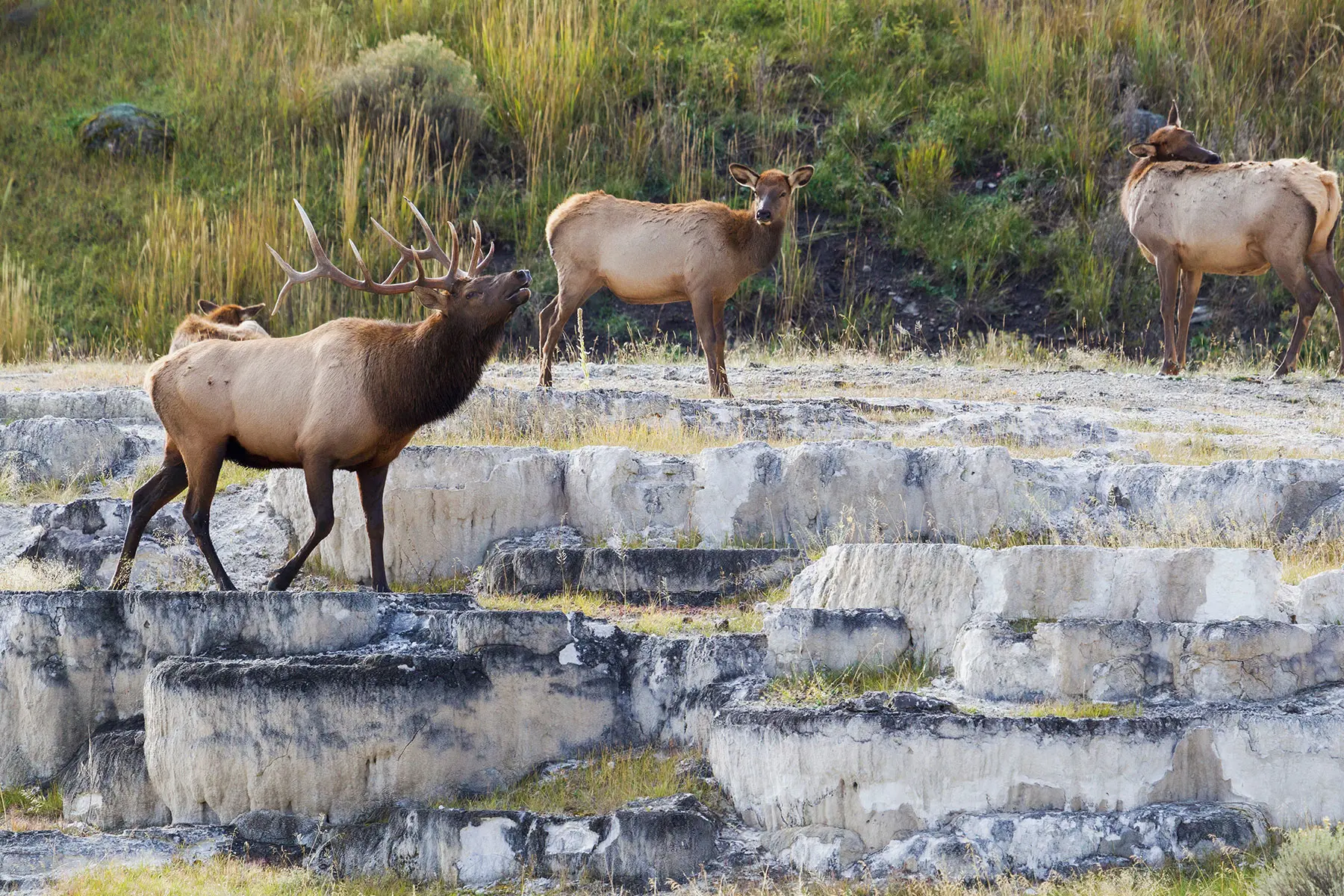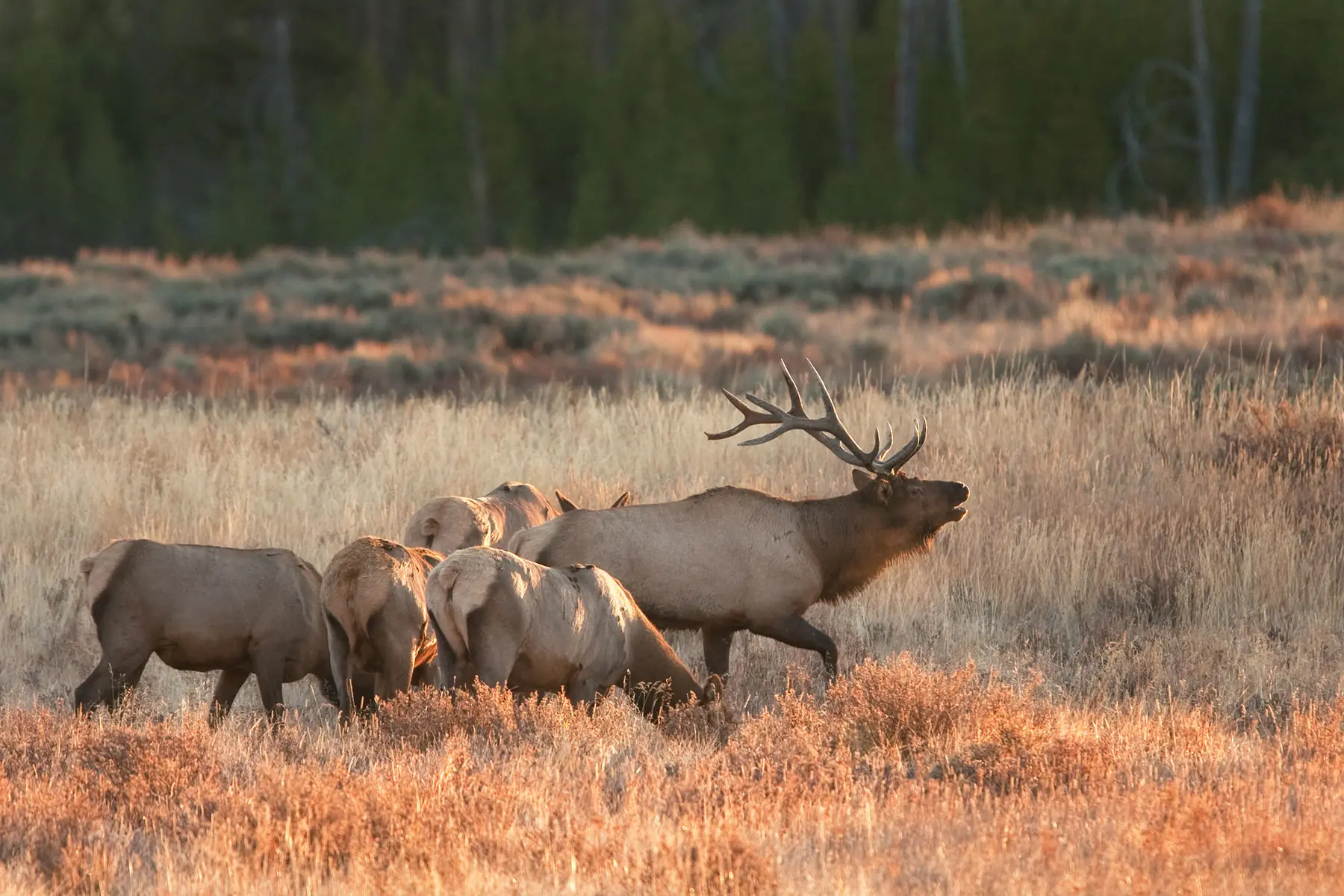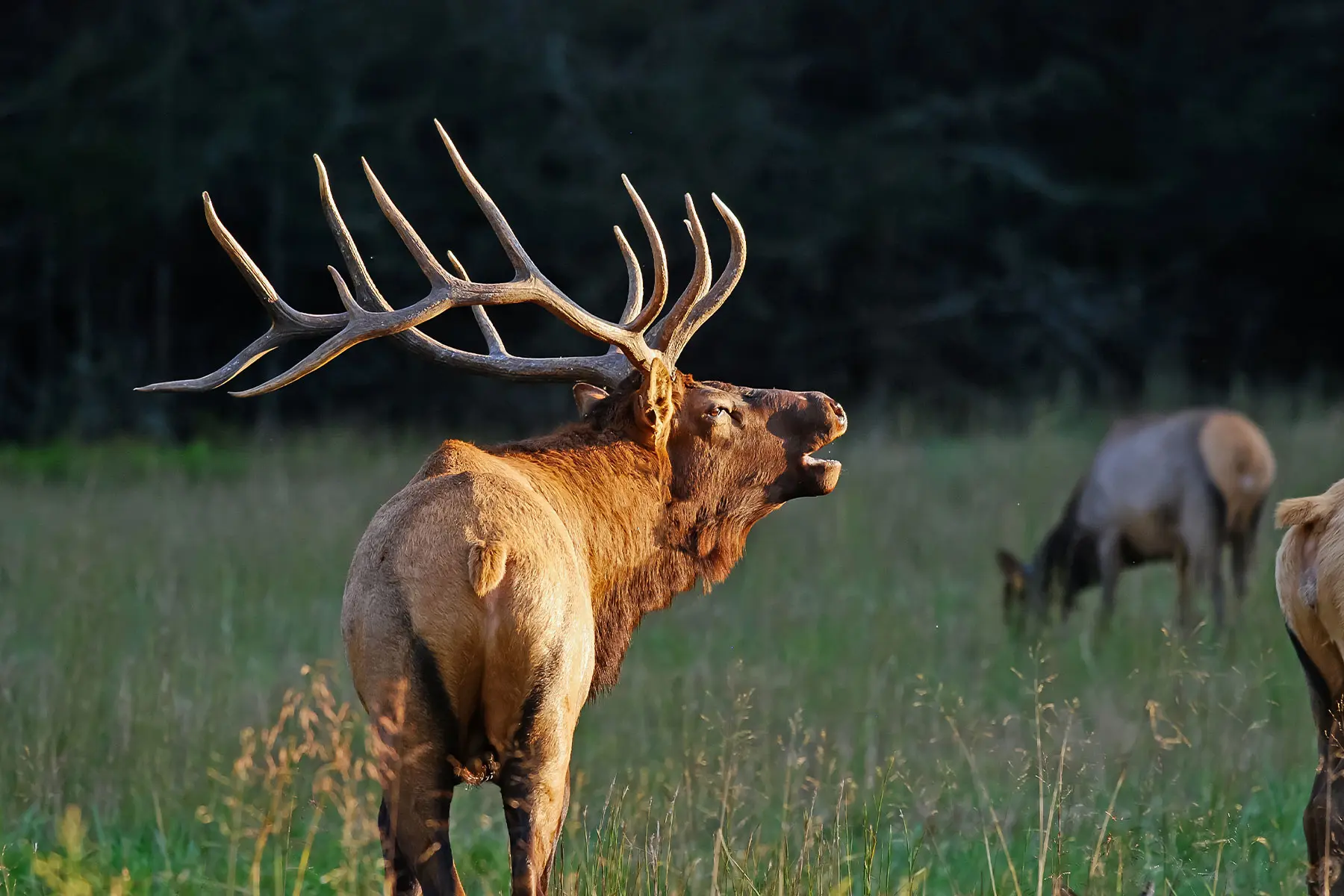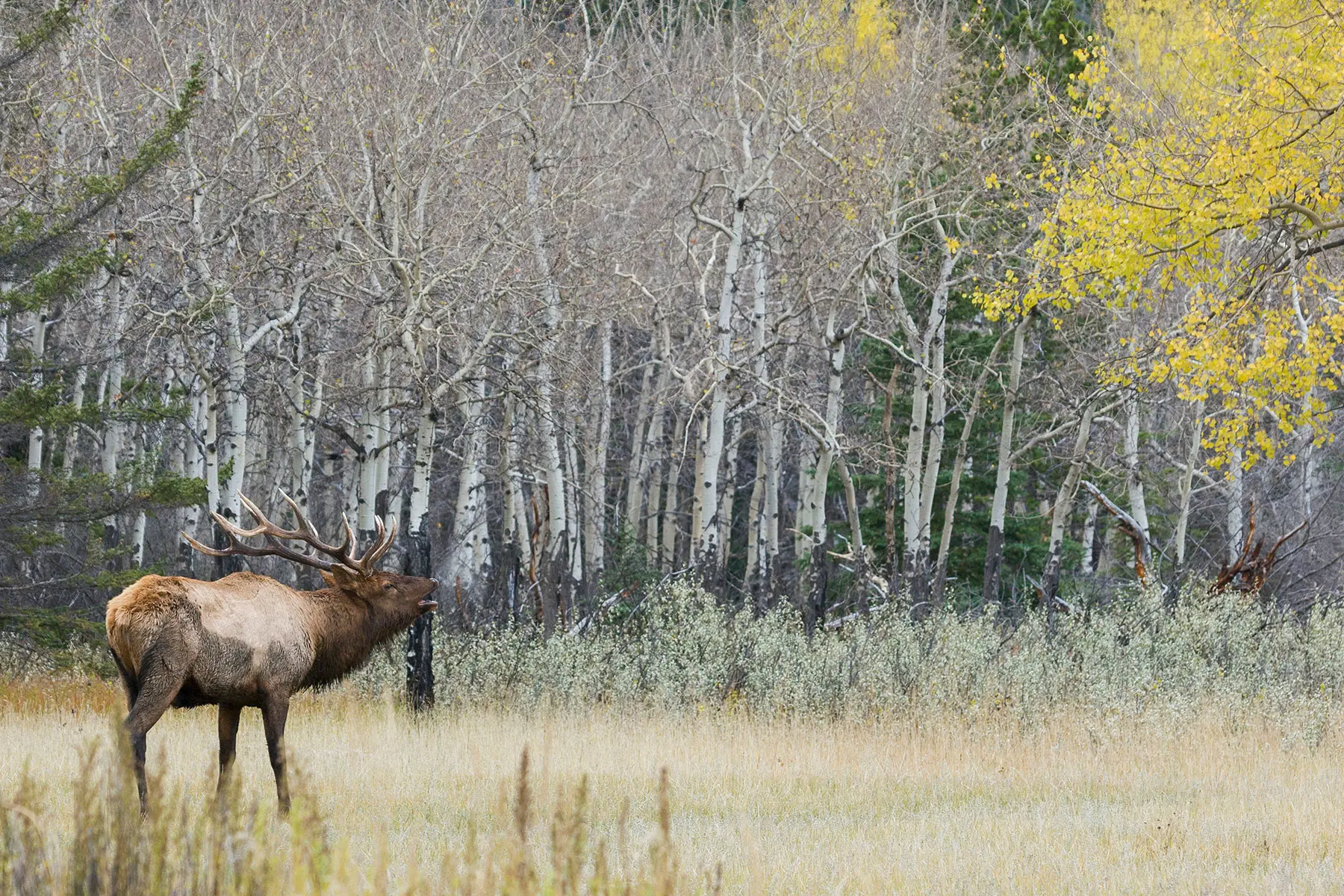You won't find a more impressive big game animal than a bugling bull elk tending a harem of cows during the heart of the September elk rut. Add to that vision the type of awe-inspiring country—high-altitude parks beneath snow-capped peaks, sprawling plains, and lush grasslands to name a few—that elk tend to inhabit, and it's easy to see why North American elk hunting is one of the most coveted outdoor pursuits in the world.
The elk itself is one of North America's greatest conservation success stories. Its range once sprawled across the entire continent. According to the U.S. Forest Service, there were nearly 10 million elk afoot in North America around the time of European contact. Then, by the late 1800s, they were all but gone, with remnant herds living only in the confines of Yellowstone National Park.

Fast forward to today and elk have reclaimed many of their native haunts. Even if you don't have have an elk within a 200-mile radius of your back door, you're likely no more than a long day's drive from a legitimate elk hunting hotspot. That's thanks in no small part to the efforts of America's earliest conservationists like Teddy Roosevelt and George Bird Grinnell, who formed the Boone & Crockett Club in December 1871 as a way for big game hunters all over the continent to record and celebrate some of their biggest trophy animals while reinforcing fair chase ethics.
Most estimates put today's American elk population in the neighborhood of one million head. Huntable numbers are thriving, even east of the Mississippi, but the Intermountain West is blessed to have more elk than any other region of the country. Here are 5 of the best Western states to travel to in search of big bulls—ranked in accordance with Boone & Crockett record book entries logged over the last 10 years.
1. Arizona
According to the Boone & Crockett Club, which has maintained big game records in American for nearly 200 years, Arizona is the place to go for the biggest non-typical bull elk in the country. Between 2013 and 2023, the club says, there were a whopping 91 typical and non-typical bulls submitted the club's Arizona record books. All told, hunters from have submitted 224 typical trophies from the state of Arizona since records began.
Arizona's elk season is divided into four separate phases: early archery, late archery, early rifle/muzzleloader, and late rifle. The five most highly-sought units are 10,9,23,8, and 7 West—in that order, according to Outdoors International. The genetics are second-to-none, and B&C-caliber bulls hits the record books nearly every year. But premium tags are extremely tough to draw, even for Arizona residents.

In order to make the B&C books, a non-typical bull must score at least 385 points, while a typical bull's rack has to come in at 360 points minimum. Hunter Jared S. Cantley's 2020 non-typical bull far surpassed the 385 benchmark for non-typical, scoring 448-5/8 inches after he shot it from just 50 yards away with a .270 while hunting on the White Mountain Apache Reservation. In fact, 19 of the last 39 entries from non-typical elk in Arizona came off either the White Mountain Apache or the San Carlos Reservation. If you're looking to replicate Cantley's experience, though, you'll need to stash away some serious cash as hunts on either of those reservations will set you back tens of thousands of dollars if you ever manage to make the top of their lengthy wait lists.
2. New Mexico
Recent estimates put New Mexico's elk population somewhere around 104,000 individual animals. Though rack sizes can be negatively impacted by the state's frequent drought conditions, bulls can develop massive headgear during times of adequate moisture. In fact, the Enchantment State comes in at number 7 on the B&C's list of top-15 elk hunting states between 2013 and 2023.
The New Mexico Department of Game & Fish issues elk tags for both private and public land hunting opportunities. On average, the state issues about 37,000 elk licenses per year and hunters enjoy a 41 percent success rate across all weapons categories.
Over the last decade, hunters in New Mexico have taken more than 25 B&C-qualifying typical and non-typical bull elk, but the current state records predate all of those entries. The non-typical record (4324 3/8) was killed by Lawrence Sanchez way back in 1962, and the typical record, a 402 2/8 incher, was picked up in 1997. Last year, a young hunter made headlines after arrowing a massive 8X8 with a green score of 436 3/8. More on that bull here.
3. Wyoming
The "Good Ol' Days" of elk hunting in Wyoming are right happening right now. The Cowboy State, which is about 42 percent federally-managed public land, boasts approximately 109,000 free-ranging elk, according the Wyoming Game & Fish Department. In fact, elk have become so abundant in recent years that they're causing serious headaches for private landowners and ranchers, with elk damage claims increasing by 42 percent statewide over the last 5 years.

“Elk populations continue to be a concern in some portions of the state where hunting access is limited and elk populations exceed our management objectives,” said Rick King, WGFD chief of wildlife, in a recent statement. In order to address the problem WGFD is increasing elk quotas in targeted areas, establishing general seasons, and extending seasons or issuing late-season cow-calf licenses. They're also working directly with landowners and rancher to increase hunter access on private land vis the state's "Access Yes Program."
A quick scan of Boone & Crockett's elk archives shows that Wyoming is no slouch when it comes to big bulls. The state stands toward the top of the heap when it comes to typical trophies taken over time, with 186 bulls on the books since the the late 1800s. Wyoming's top two typical elk—a 441 6/8 taken by a 418 7/8—were taken in 1890 and 1886, respectively. Over the last decade, the state logged 44 new typical and non-typical records. If you'd like to get eyes on the biggest Wyoming typical of all time, head over the Jackson Hole Museum in Jackson Hole, Wyoming.
4. Montana
Montana is synonymous with good elk hunting, and the Big Sky State's reputation in borne out in the Boon & Crockett record books. All told, hunters entered 70 typical and non-typical Montana elk into the books between 2013 and 2023, and the state boasts nearly 300 record-book wapiti since B&C started keeping the books. It also hold the distinction of having more typical bull elk trophies in the B&C books than any other state in the country.

With some 30 million acres of state and federal lands and statewide elk herd estimated roughly 170,000 animals, there's ample elk hunting opportunity in Montana for residents and non-residents alike. According to Montana Fish, Wildlife & Parks, a non-resident general elk combination license will set you back $1,046, and that includes a season fishing license and an upland bird license. Non-resident general elk tags are awarded via random lottery draw for applicants who apply between March 1 and April 1. If you're an out-of-state hunter, you can increase your likelihood of drawing a general elk tag in Montana by accumulating preference points over time.
5. Colorado
With its towering snow-capped summits and sprawling stands of golden aspen, Colorado is the quintessential elk state—and it boasts the world's largest elk populations with an estimated 280,000 individual animals. There have been 138 typical and 24 non-typical elk taken in the state since B&C began keeping records, with the most famous bull being Crested Butte miner John Plutte's 1899 monster, which still holds the top typical spot with a score of 442 3/8. While Colorado has more free-ranging elk than any other state, trophy caliber bulls are relatively rare these days, with just 40 hitting the books between 2023 and 2013. That said, the Centennial State still ranks number 6 on the club's list of top-15 elk hunting states.

No discussion of elk hunting in Colorado would be complete without mention of John Plutte's world-famous "meat bull." A native Austrian who immigrated to the United States in 1889 and ended up working a coal mine in the Colorado high country, Plutte shot the massive bull after riding his horse into a canyon northwest of Crested Butte where he rented out a boarding room above a bar in exchange for deer and elk meat that he hunted in the mountains around town.
Legend says that Plutte returned to town on the day of the hunt with only the elk's massive quarters to show for his efforts because the head and horns had been too big to pack out on his horse with all the meat in tow. When bar patrons doubted the size of the rack that Plutte described when recounting his adventure, he road back into Dark Canyon to get proof. The enormous rack hung on the wall of Crested Butte's Elk Saloon until 1948, but Boone & Crockett didn't put tape to the antlers until 1962. Once the club finally got wind of Plutte's Meat Bull, it became a reigning World's Record and remained in the top spot for more than 30 years. Today, the iconic rack is on display in the Crested Butte Museum.


